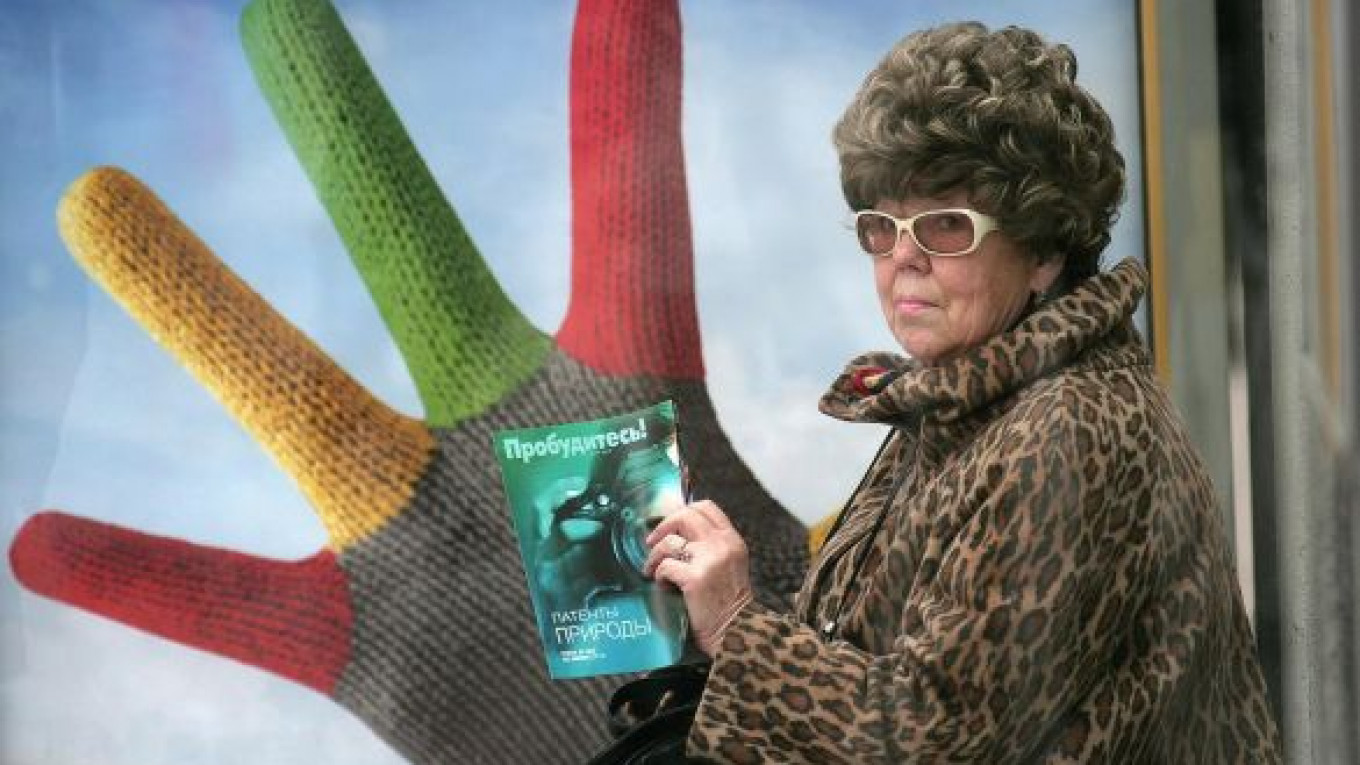The work of Moscow Times photographers has been honored at one of the capital's major art galleries.
An exhibit celebrating the images of Igor Tabakov and Vladimir Filonov runs this week at the Multimedia Art Museum in conjunction with the newspaper's 20th birthday.
Hundreds of guests attended the opening of the exhibition, which featured speeches from the paper's founder and publisher, Derk Sauer, as well as photographs and videos charting the development of the newspaper over the last 20 years.
Sauer paid tribute to Tabakov and Filonov, calling their work "the most wonderful photography you could imagine."
Both Filonov and Tabakov have been with the paper throughout its 20 years. Another veteran of the paper, theater critic John Freedman, said that "in [his] opinion, Igor and Vladimir are The Moscow Times."
The exhibit features a selection of the pair's best works, creating a remarkable record of 20 years in Moscow through both of their distinct styles.
Frontline photos from dramatic historic moments in the capital are shown side by side with expressive shots of everyday life in the city. It is an eclectic mixture of tragedy and humor that is both intimate and epic.
Filonov trained as an electrical engineer before going on to work in the Russian space industry, taking photos in his spare time.
"I didn't expect to work at the paper for more than three months because I preferred to work on more extensive themes," said Filonov, who has won hundreds of awards for his photos. "At a newspaper, everything has to move very fast, which means that you normally don't get the chance to even talk to whoever you're taking a picture of."
Yet depth and thoughtfulness are nevertheless apparent in his photographs. A shot of two women of different generations passing each other on the street is particularly striking: themes of youth, mortality and change powerfully yet seemingly effortlessly communicated.
Filonov recalled his meeting with Sauer on Aug. 18 1991, to discuss working with the paper.
"The next day was the 19th, and the coup happened, and tanks appeared on the streets of Moscow.'
Tabakov studied journalism at MGU and has had a passion for photography since he was 10 years old. His friend journalist Mikhail Sokolov suggested that he think about working at The Moscow Times, and Tabakov decided that he would "from then on work solely as a photojournalist," although like Filonov he did not expect to be working at the paper 20 years later.
Another particularly moving photograph in the exhibit by Tabakov shows shattered rescue workers in 2000 after a terrorist attack on the metro.
Both photographers said it was hard to single out the most striking memory of their time as photojournalists, but neither will forget lying on the floor together in the Mir Hotel to avoid the sights of sniper rifles during the storming of the White House in October 1993.
Another time, Filonov remembers running away from the OMON riot police, who were arresting all photographers at a protest in Moscow of the Beijing Olympics in 2008.
"To this day, I remember the sight of an officer over my shoulder," he said.
Both said they enjoy working with foreign journalists at the paper, "although sometimes their exactness and logical approach to things is annoying," Filonov said. "Russians don't interpret facts so literally, but gradually I've adopted this approach."
The exhibit runs until Wednesday at the Multimedia Art Museum. 16 Ulitsa Ostozhenka. Metro Kropotkinskaya. 495-637-1100.?
Related articles:
A Message from The Moscow Times:
Dear readers,
We are facing unprecedented challenges. Russia's Prosecutor General's Office has designated The Moscow Times as an "undesirable" organization, criminalizing our work and putting our staff at risk of prosecution. This follows our earlier unjust labeling as a "foreign agent."
These actions are direct attempts to silence independent journalism in Russia. The authorities claim our work "discredits the decisions of the Russian leadership." We see things differently: we strive to provide accurate, unbiased reporting on Russia.
We, the journalists of The Moscow Times, refuse to be silenced. But to continue our work, we need your help.
Your support, no matter how small, makes a world of difference. If you can, please support us monthly starting from just $2. It's quick to set up, and every contribution makes a significant impact.
By supporting The Moscow Times, you're defending open, independent journalism in the face of repression. Thank you for standing with us.
Remind me later.


